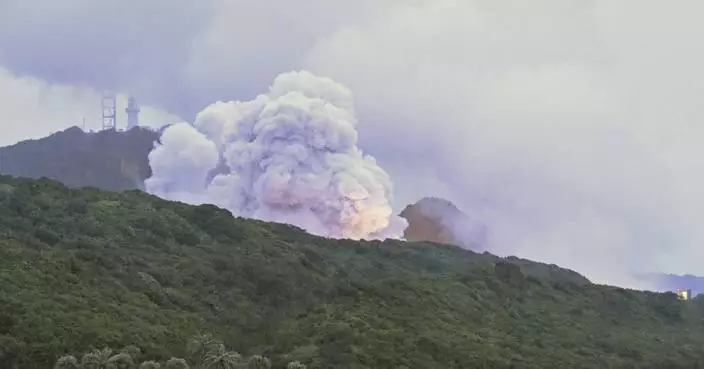BROOMFIELD, Colo.--(BUSINESS WIRE)--Nov 26, 2024--
Swisslog Healthcare, a leading global provider of integrated medication supply chain solutions, announces the appointment of Yufei Chen as Global Innovation Executive. This strategic move supports Swisslog Healthcare's commitment to advancing innovation in medication management and leveraging global partnerships.
This press release features multimedia. View the full release here: https://www.businesswire.com/news/home/20241126710978/en/
In his new role, Chen will spearhead Swisslog Healthcare's global innovation initiatives, focusing on developing new approaches to innovation in response to technological advancements in the medication management market, growth opportunities in Asia, potential market expansion in North America, and external developments in regulation, security, and artificial intelligence.
“The healthcare industry is rapidly evolving, and I look forward to fostering technology collaboration across Asia, China, and the U.S., while leveraging our corporate market position to drive innovation that will shape the future of medication management,” said Yufei Chen, Global Innovation Executive at Swisslog Healthcare.
Chen will play a crucial role in coordinating innovation development projects, establishing and managing technology partnerships, and supporting potential development outsourcing and localization projects. His responsibilities will also include reviewing external trends and technologies, translating them into innovation directions for Swisslog Healthcare, and supporting the company's medication management security approach.
“Yufei's appointment marks a significant step in our global innovation strategy,” said Cory Kwarta, CEO of Swisslog Healthcare. “His extensive experience in global product management and innovation, coupled with his multi-disciplinary background, will be instrumental in bringing innovative offerings to the global marketplace and driving technological advancements across our entire portfolio.”
Chen brings over a decade of experience from Siemens in Switzerland, where he gained expertise in global product management and innovation management concepts and processes. His significant business development and regional management experience in global organizations will contribute to Swisslog Healthcare's mission of optimizing medication management workflows and enhancing patient safety.
Based in Swisslog Healthcare's offices in Switzerland, Chen will be part of the global medication management leadership team, collaborating with stakeholders across various departments and external partners to advance the company's innovation agenda.
About Swisslog Healthcare:
Swisslog Healthcare is a leading provider of integrated medication supply chain solutions to hospitals and health systems worldwide. With a focus on automating medication management workflows, Swisslog Healthcare's solutions, including the renowned TransLogic tube systems, help prevent medication errors, increase throughput, and reduce redundancies. The company serves over 3,000 hospitals and healthcare facilities globally, ensuring the right medications reach the right patients at the right time, thereby enhancing patient safety and care.


Swisslog Healthcare appoints Yufei Chen as Global Innovation Executive. (Photo: Business Wire)
BEIRUT (AP) — Israeli warplanes struck central Beirut and the city's southern suburbs on Tuesday, raising palls of smoke over the Lebanese capital ahead of a planned vote by Israel's leadership on whether to accept a U.S.-brokered ceasefire aimed at ending more than a year of fighting with Hezbollah.
The Israeli military also issued warnings for 20 more buildings in Beirut's suburbs to evacuate before they too were struck — a sign it was aiming to inflict punishment on Hezbollah down to the last moments before any ceasefire takes hold. Israeli ground troops also reached parts of Lebanon’s Litani River for the first time in the conflict— a focal point of the emerging ceasefire.
A ceasefire was still not a sure thing, but Israel’s security Cabinet, meeting Tuesday afternoon, was expected to approve the U.S.-backed proposal. Lebanese officials have said Hezbollah also supports the deal. If approved by all sides, the deal would be a major step towards ending the Israel-Hezbollah war that has inflamed tensions across the region and raised fears of an even wider conflict between Israel and Hezbollah's patron, Iran.
The deal calls for a two-month initial halt in fighting and would require Hezbollah to end its armed presence in a broad swath of southern Lebanon, while Israeli troops would return to their side of the border. Thousands of Lebanese troopsand U.N. peacekeepers would deploy in the south, and an international panel headed by the United States would monitor all sides’ compliance.
But implementation remains a major question mark. Israel has demanded the right to act should Hezbollah violate its obligations. Lebanese officials have rejected writing that into the proposal. Israel's Defense Minister Israel Katz insisted on Tuesday that the military would strike Hezbollah if the U.N. peacekeeping force, known as UNIFIL, doesn’t provide “effective enforcement” of the deal.
“If you don’t act, we will act, and with great force,” he said, speaking with U.N. special envoy Jeanine Hennis-Plasschaert.
The European Union’s top diplomat, Josep Borrell, said Tuesday that Israel’s security concerns had been addressed in the U.S.-French-brokered deal.
“There is not an excuse for not implementing a ceasefire. Otherwise, Lebanon will fall apart,” Borrell told reporters in Fiuggi, Italy, on the sidelines of a Group of Seven meeting. He said the U.S. would chair a ceasefire implementation committee, and France would participate at the request of Lebanon.
Even as Israeli, U.S, Lebanese and international officials have expressed growing optimism over a ceasefire, Israel has continued its campaign in Lebanon, which it says aims to cripple Hezbollah’s military capabilities.
An Israeli strike on Tuesday levelled a residential building in the central Beirut district of Basta - the second time in recent days warplanes have hit the crowded area near the city’s downtown.
There were no immediate report of casualties. It was not immediately clear if anyone in particular was targeted, though Israel says its airstrikes target Hezbollah officials and assets.
Earlier, Israeli jets struck at least six buildings in Beirut’s southern suburbs Tuesday. One strike slammed near the country’s only airport, sending large plumes of smoke into the sky. The airport has continued to function despite its location on the Mediterranean coast next to the densely populated suburbs where many of Hezbollah’s operations are based.
Israeli military spokesman Avichay Adraee issued evacuation warnings for 20 buildings in the suburbs, as well as a warning for the southern town of Naqoura where UNIFIL is headquartered.
Other strikes hit in the southern city of Tyre, where the Israeli military said it killed a local Hezbollah commander.
The Israeli military also said its ground troops clashed with Hezbollah forces and destroyed rocket launchers in the Slouqi area on the eastern end of the Litani River, just a few kilometers (miles) from the border.
Under the ceasefire deal, Hezbollah would be required to move its forces north of the Litani, which in some places is about 30 kilometers (20 miles) north of the Israeli border.
A ceasefire between Israel and Hezbollah, the strongest Iranian-backed force in the region, would likely significantly calm regional tensions that have led to fears of a direct, all-out war between Israel and Iran. It’s not clear how the ceasefire will affect the Israel-Hamas war in Gaza. Hezbollah had long insisted that it would not agree to a ceasefire until the war in Gaza ends, but it dropped that condition.
Hezbollah began firing into northern Israel, saying it was showing support for the Palestinians, a day after Hamas carried out its Oct. 7, 2023, attack on southern Israel, triggering the Gaza war. Israel returned fire on Hezbollah, and the two sides have been exchanging barrages ever since.
In early September, Israel escalated its campaign of bombardment and sent troops into Lebanon, vowing to put an end to Hezbollah fire.
More than 3,760 people have been killed by Israeli fire in Lebanon the past 13 months, many of them civilians, according to Lebanese health officials. The bombardment has driven 1.2 million people from their homes. Israel says it has killed more than 2,000 Hezbollah members.
Hezbollah fire has forced some 50,000 Israelis to evacuate homes in the country’s north, and its rockets have reached as far south in Israel as Tel Aviv. At least 75 people have been killed, more than half of them civilians. More than 50 Israeli soldiers died fighting in the ground offensive in Lebanon.
After previous hopes for a ceasefire were dashed, U.S. officials cautioned that negotiations were not yet complete and noted that there could be last-minute hitches that either delay or destroy an agreement.
“Nothing is done until everything is done,” White House national security spokesman John Kirby said.
While the ceasefire proposal is expected to be approved if Netanyahu brings it to a vote in his security Cabinet, one hard-line member, National Security Minister Itamar Ben-Gvir, said he would oppose it. He said on X that a deal with Lebanon would be a “big mistake” and a “missed historic opportunity to eradicate Hezbollah.”
Find more of AP’s war coverage at https://apnews.com/hub/israel-hamas-war
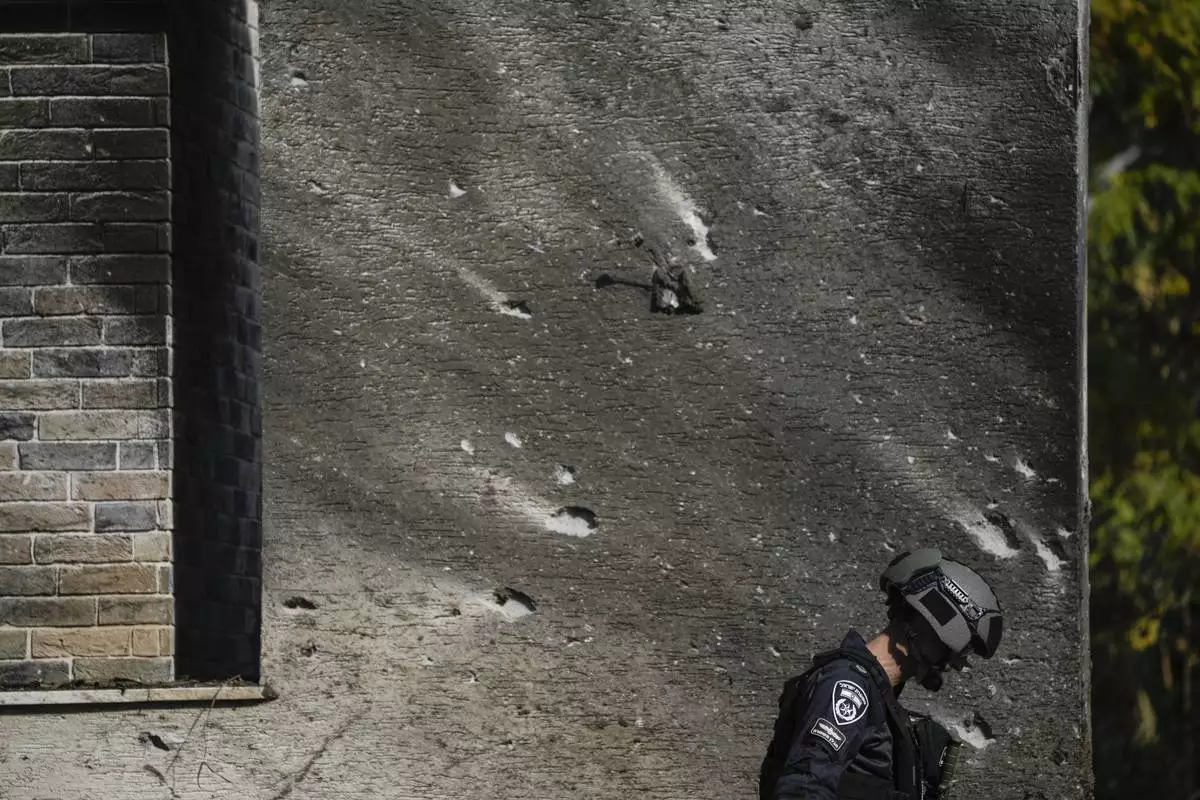
A police bomb squad officer inspects the site where a rocket fired from Lebanon landed in a backyard in Kiryat Shmona, northern Israel, Tuesday Nov. 26, 2024. (AP Photo/Leo Correa)
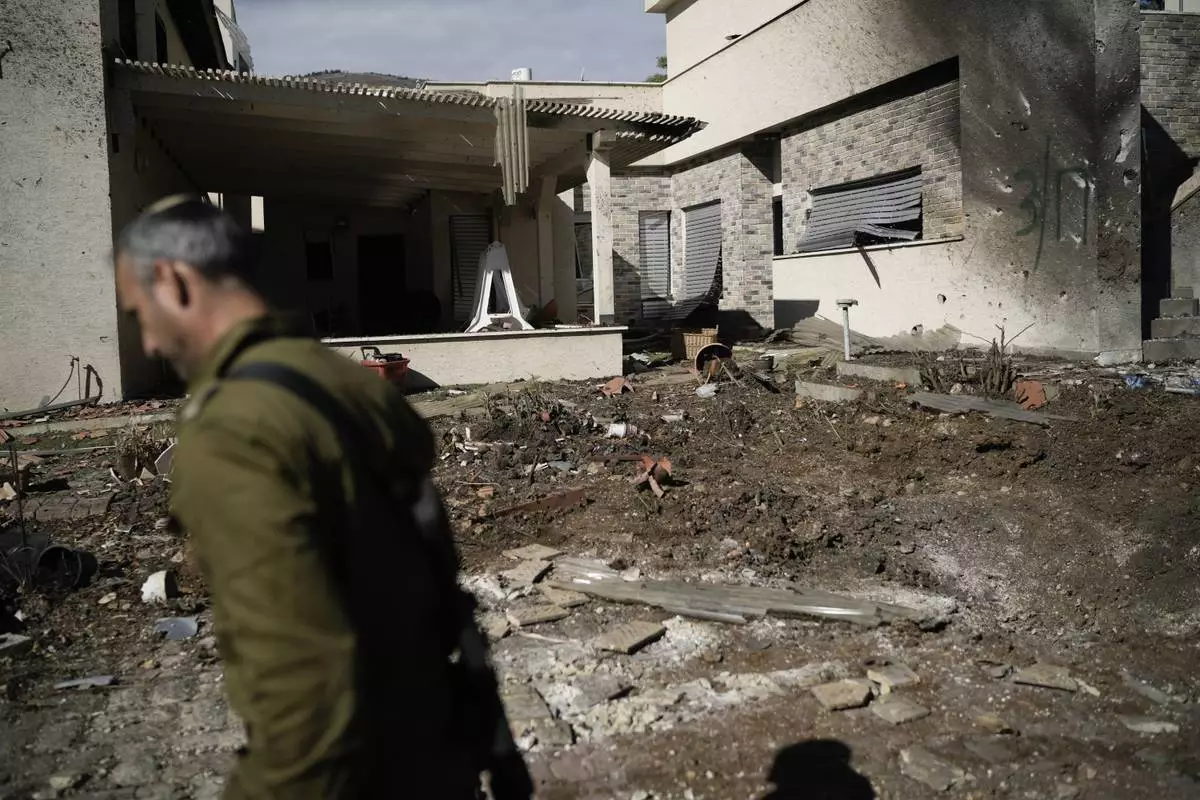
An Israeli soldier inspects the site where a rocket fired from Lebanon landed in a backyard in Kiryat Shmona, northern Israel, Tuesday Nov. 26, 2024. (AP Photo/Leo Correa)
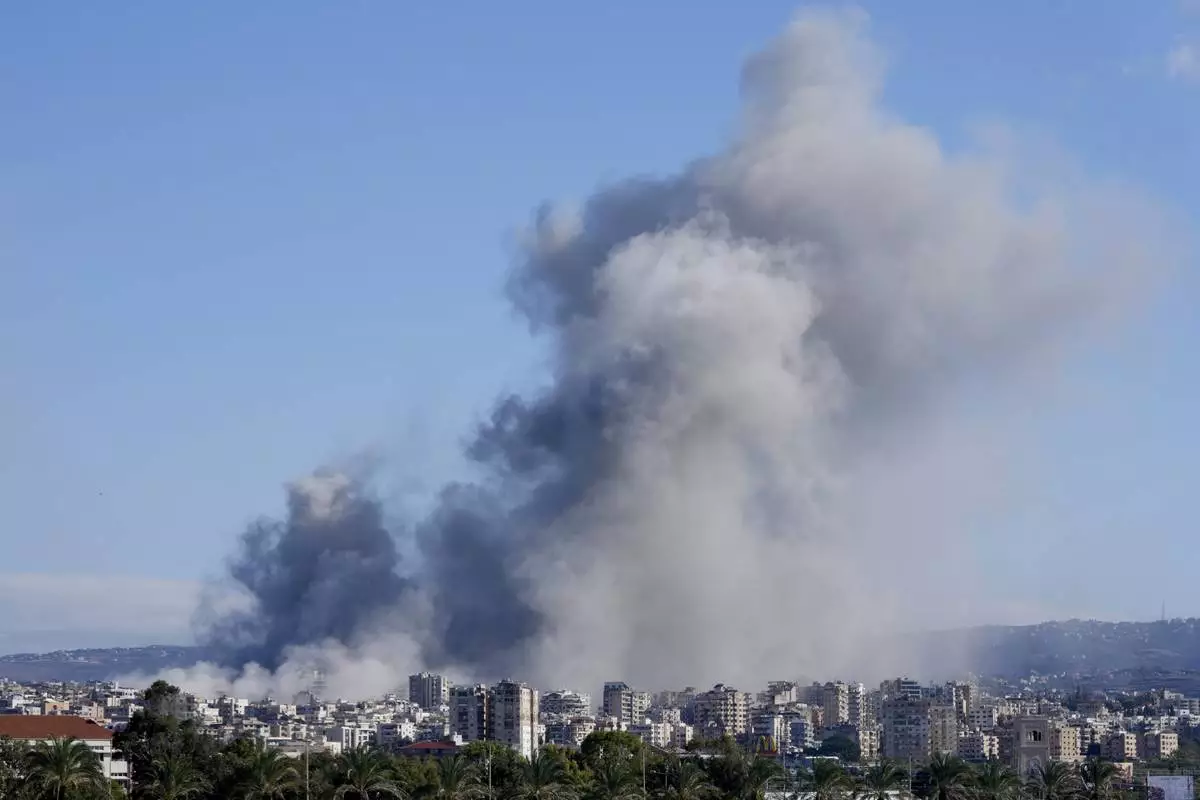
Smoke rises between buildings hit in Israeli airstrikes in Hosh neighbourhood, in Tyre, south Lebanon, Tuesday, Nov. 26, 2024. (AP Photo/Hussein Malla)
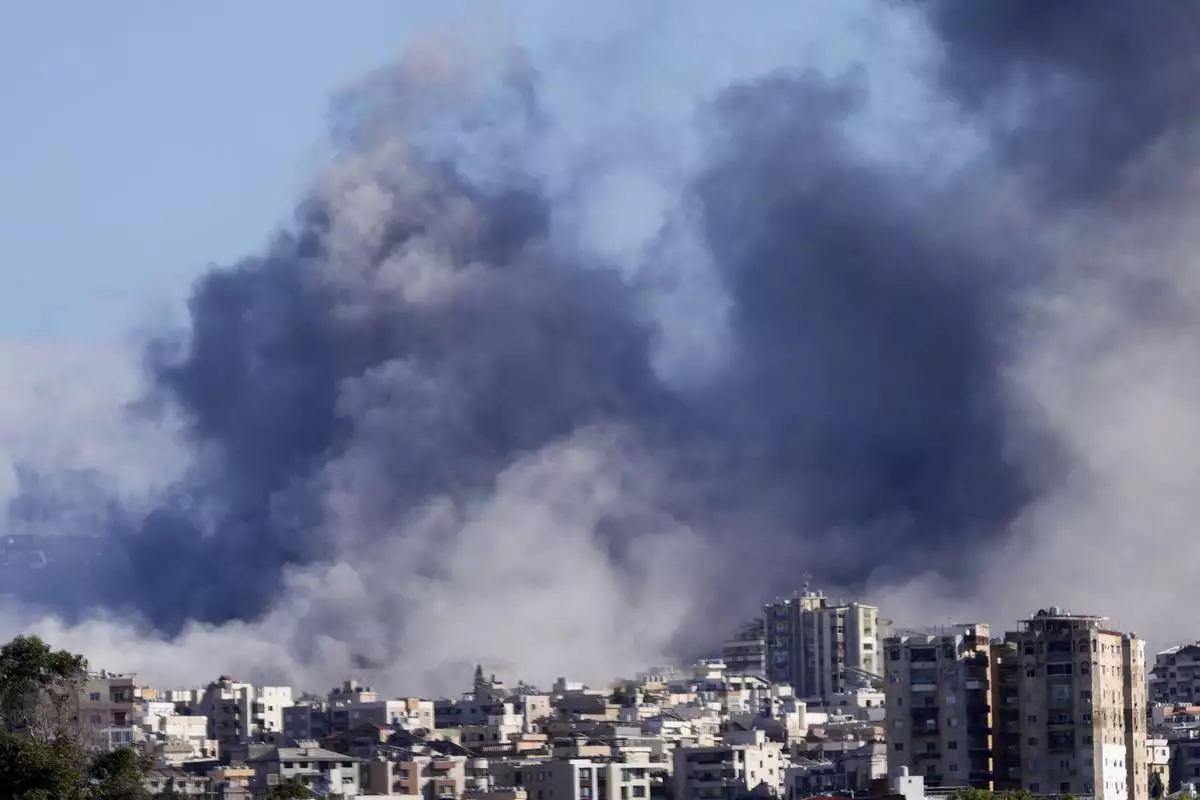
Smoke rises between buildings hit in Israeli airstrikes in Hosh neighbourhood, in Tyre, south Lebanon, Tuesday, Nov. 26, 2024. (AP Photo/Hussein Malla)
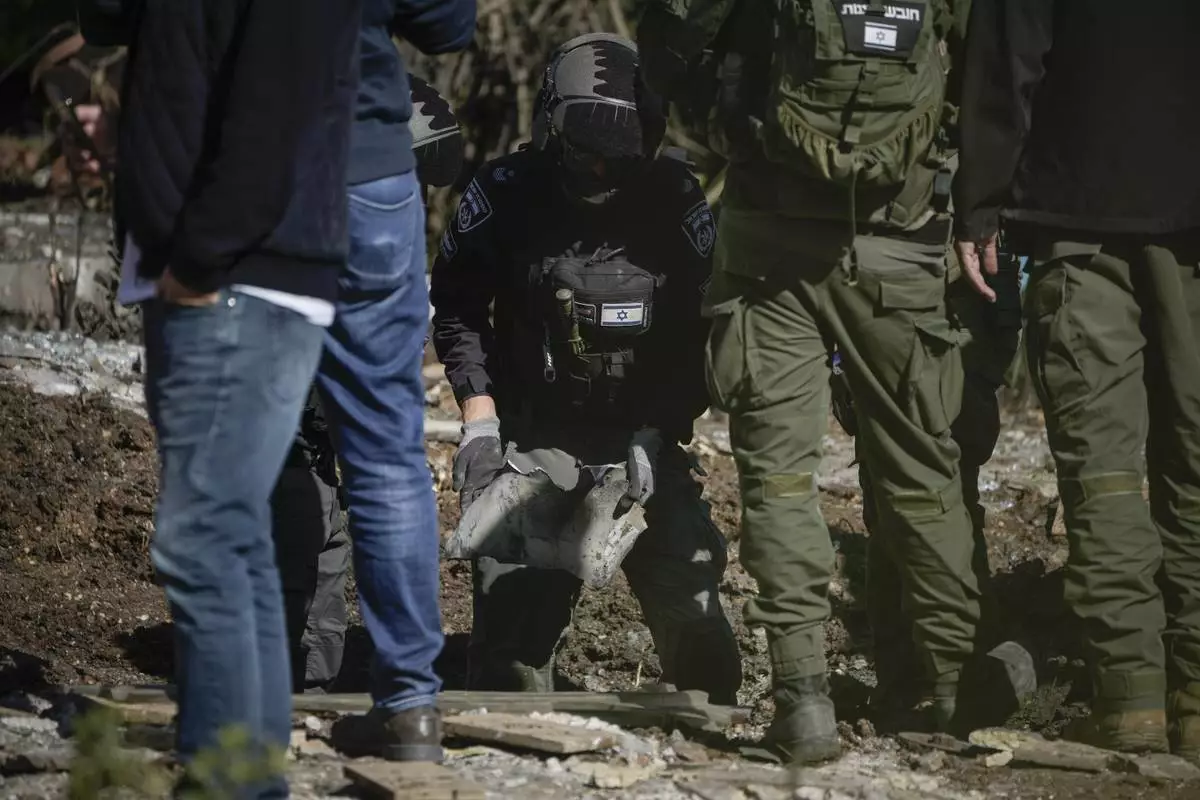
Police bomb squad officers collect the pieces of a rocket fired from Lebanon that landed in a backyard in Kiryat Shmona, northern Israel, Tuesday Nov. 26, 2024. (AP Photo/Leo Correa)
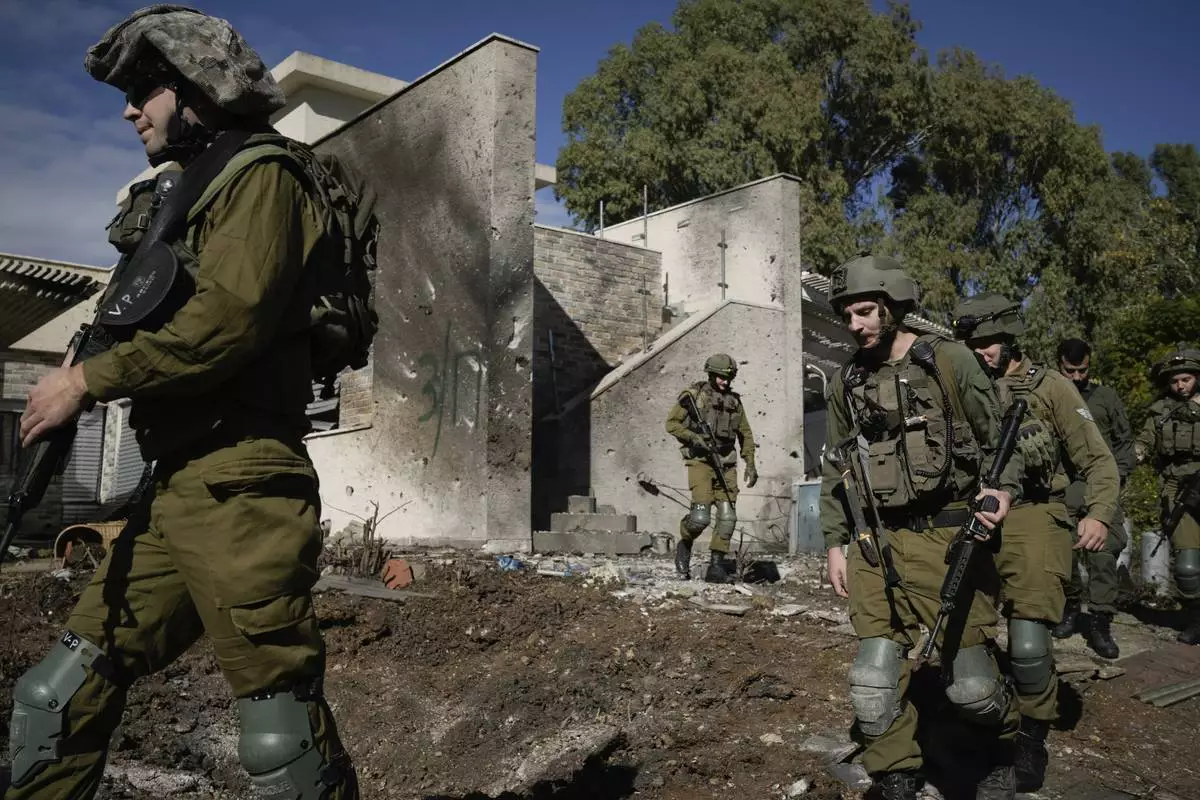
Israeli soldiers inspect the site where a rocket fired from Lebanon landed in a backyard in Kiryat Shmona, northern Israel, Tuesday Nov. 26, 2024. (AP Photo/Leo Correa)
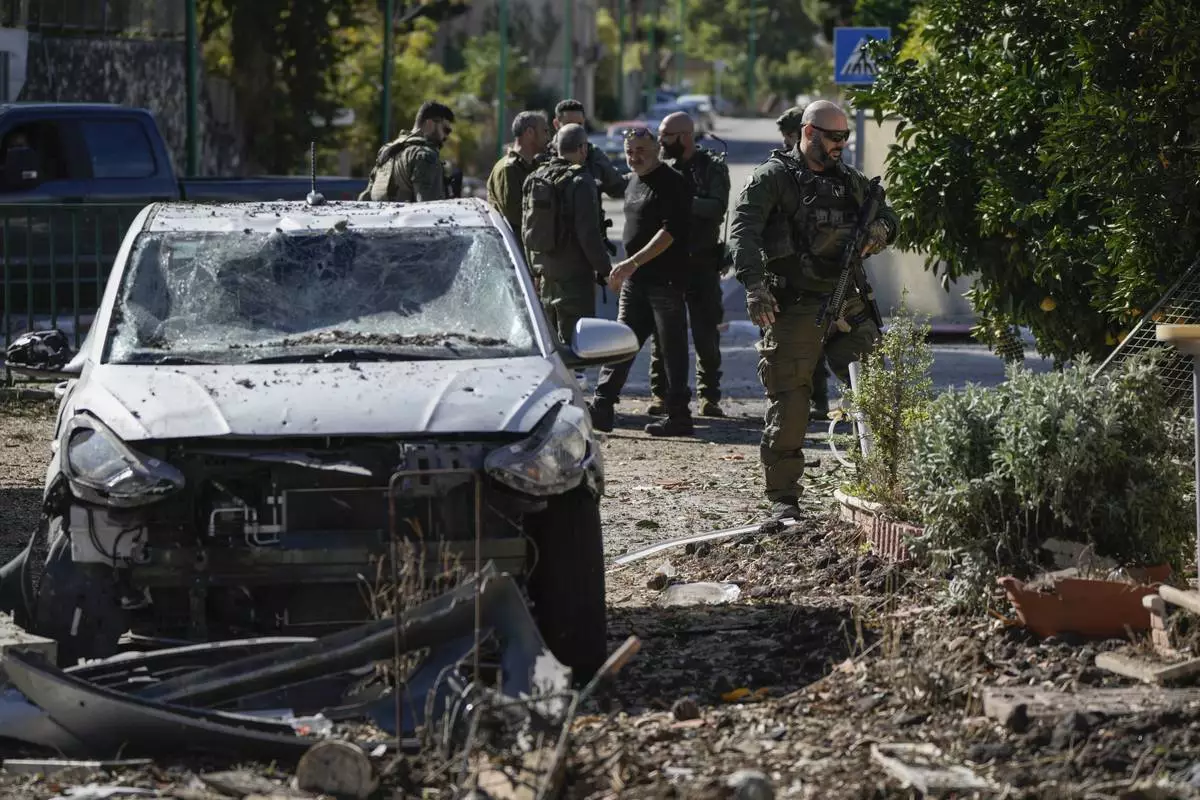
Israeli security officers and army soldiers inspect the site where a rocket fired from Lebanon landed in a backyard in Kiryat Shmona, northern Israel, Tuesday Nov. 26, 2024. (AP Photo/Leo Correa)















